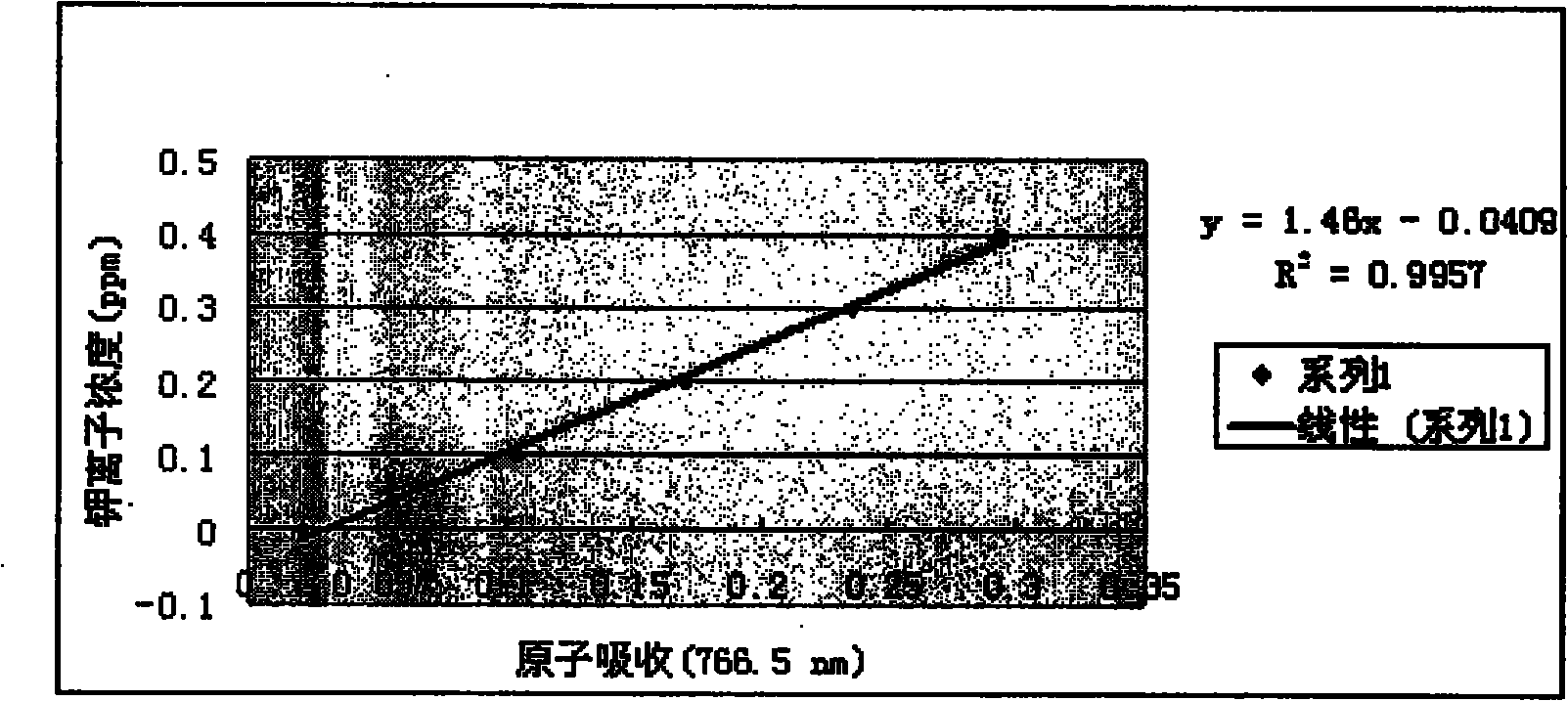Bacillus mucilaginosus with potassium-decomposing function and application thereof
A technology for bacillus colloid and potassium solution, applied in the application, bacteria, organic fertilizer and other directions, can solve the problems of ecological environment damage, low utilization rate, high cost, improve the quality of agricultural products, improve the soil microenvironment, and reduce the application amount Effect
- Summary
- Abstract
- Description
- Claims
- Application Information
AI Technical Summary
Problems solved by technology
Method used
Image
Examples
Embodiment 1
[0020] Example 1. Isolation and Identification of Bacillus mucilaginosus NK 102
[0021] The strain was isolated from farmland soil in the suburbs of Jining City, Shandong Province.
[0022] The specific implementation steps are as follows: under aseptic operation, weigh 1.0 g of soil sample and dissolve it in 9 ml of sterile physiological saline, shake it fully, dilute it in gradient, and spread it on the prepared separation medium plate. Put it upside down in an incubator at 28-30°C and cultivate it for 2-3 days, use an inoculation needle to pick up the colonies with rounded edges, moist, viscous, colorless, transparent and elastic, and further separate and purify. Then the strains were inoculated in the potassium solution assay medium, and re-screened to determine the silicate strains. After Gram staining and 16S rDNA gene sequence analysis, it was determined that the strain was Bacillus mucilaginosus NK 102, and the strain was named Bacillus mucilaginosus NK 102, and the ...
Embodiment 2
[0023] Embodiment 2, the preparation of potassium ion standard curve
[0024] Potassium standard solution preparation. Take 1000ppm K single-element standard solution mother solution, respectively accurately dilute to 0, 0.1, 0.2, 0.3, 0.4ppm K standard solution, measure by atomic absorption spectrophotometry, and draw the working curve. As attached to the manual figure 1 shown.
Embodiment 3
[0025] Embodiment 3, Bacillus mucilaginosus (Bacillus mucilaginosus) NK 102 potassium solution assay experiment 1
[0026] The potassium-dissolving medium is used, and the specific implementation steps are as follows: the strains are connected to the potassium bacteria liquid activation medium, cultured with shaking at 30°C for 24 hours, inoculated with 2% inoculum in the potassium-dissolving medium, and the control group is inserted into the same amount of inactivation Bacterial liquid, the liquid volume is 50ml, three parallels for each group, 24°C, pH 6.5, 160rpm shaking culture for 10 days; take 5ml of fermentation liquid, put it in boiling water at 100°C for digestion, and add 6% HO intermittently 2 o 2 Until the fermented liquid is clarified, filter, settle to 100ml, and then dilute 5 times. The content of potassium ion is determined by atomic absorption spectrophotometry. The water-soluble potassium in the experimental group is 47.35% higher than that in the control gro...
PUM
 Login to View More
Login to View More Abstract
Description
Claims
Application Information
 Login to View More
Login to View More - R&D Engineer
- R&D Manager
- IP Professional
- Industry Leading Data Capabilities
- Powerful AI technology
- Patent DNA Extraction
Browse by: Latest US Patents, China's latest patents, Technical Efficacy Thesaurus, Application Domain, Technology Topic, Popular Technical Reports.
© 2024 PatSnap. All rights reserved.Legal|Privacy policy|Modern Slavery Act Transparency Statement|Sitemap|About US| Contact US: help@patsnap.com








